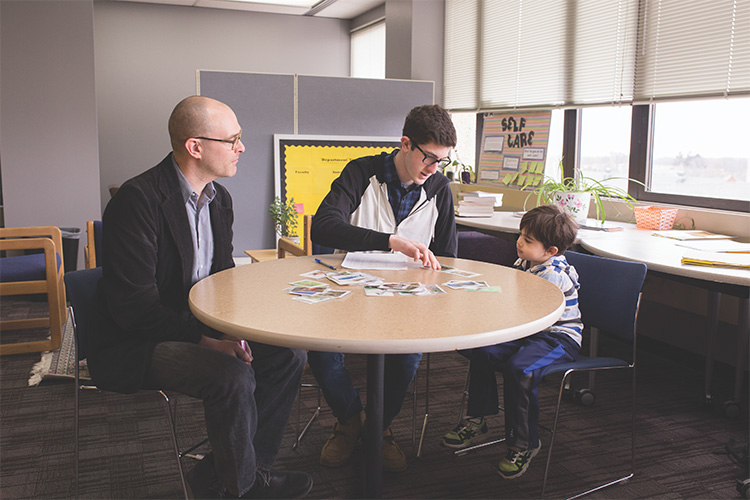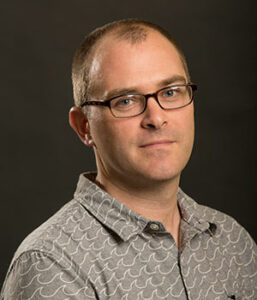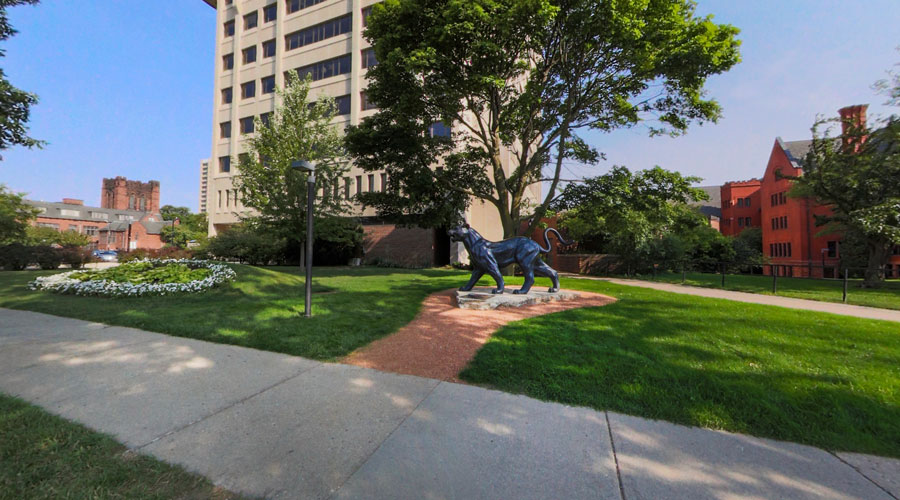Educational Psychology: Cognitive and Developmental Sciences MS
How do cognition, motivation, social interaction and culture affect human learning and development? These are some of the fascinating topics you’ll study through UWM’s Cognitive and Developmental Sciences MS program.
Program Type
Master’s
Program Format
On Campus
Why Choose Our Program?
- You’ll develop a deep understanding of the psychological foundations of education and explore the latest theories and research related to human learning and development.
- You’ll work closely with internationally known faculty who have a wide range of research interests.
- You’ll be well prepared for jobs in education, research, marketing, program evaluation and more.

This graduate-level program emphasizes the perspective of the developing learner. Graduates from this program have insight into the cognitive, emotional, and social changes in children, adolescents, and adults. Students should apply if they have an interest in:
- Learning about social, cultural and contextual influences on children, adolescents and emerging adults.
- Investigating core aspects of human development and cognition.
- Understanding the connections between parents, peers and youth over the course of development.
- Understanding how people think and reason about the world around them.
- Engaging with or independently conducting cutting-edge research applied to a broad range of learning contexts — from schools to museums to home — throughout the human lifespan.
Career
Graduates of the Cognitive and Developmental Sciences MS program go on to pursue a PhD (often in Educational Psychology, Developmental Psychology, or a related field) or find jobs in not-for-profit organizations and settings of formal and informal education, such as data analysts for school districts, program development and evaluation in community settings (e.g., museums, afterschool clubs and programs, cultural community programs).
The Graduate School provides a range of resources for student professional development on its website.
CEED-CDS Accelerated Master’s Degree Program
The accelerated master’s degree is for undergraduate students earning their bachelor’s degree who choose an accelerated undergraduate path to earn a BS in CEED (Community Engagement and Education) and an MS in CDS in five years (rather than six total). Individuals interested in this degree program can visit the CEED-CDS Accelerated Master’s Degree Program webpage.
Students completing the MS program receive a MS in Educational Psychology from the School of Education with a specialization in Cognitive & Developmental Sciences. This degree does not lead to licensure or state certification. Graduates of the Cognitive and Developmental Sciences MS program may later pursue a PhD (often in Educational Psychology or a related field) or find jobs in education and/or research settings in the private or public sectors.
The CDS Student Guide is a Canvas site to which current students should self-enroll using this link to view updated program requirements and information.
Program Requirements
The Cognitive and Developmental Sciences MS program requires 30 credits: nine credits of required core courses, 15 credits (five courses) within the CDS program chosen in consultation with your advisor, and six elective credits that can be taken from a program other than CDS. Six credits may include thesis credits.
Courses are typically selected in consultation with the advisor to meet the student’s career or academic interests. In the final semester of coursework, MS students must pass a milestone for degree completion consisting of either a master’s thesis (an independent research study) or portfolio (students entering the program starting Fall 2019).
You can also participate in research activities with our faculty, although it’s not a required component of the MS degree program. Learn more about degree requirements on the Graduate School Master’s Future Students webpage.
Cognitive & Developmental Sciences Course Rotation
The Course Rotation Schedule (PDF) is intended to help you and your advisor plan your coursework schedule. Please consult the latest Graduate School Bulletin for course descriptions; you may also consult the UWM online schedule of classes for descriptions of courses offered during the current academic year.
Application Process
All application materials must be submitted through UWM Graduate School’s Panthera Application System.
- Final Deadline for Spring Admission: Final application deadline is Oct. 1 for Spring admission.
- Final Deadline for Fall Admission: Final application deadline is Dec. 1 for Fall admission.
Please note that these dates are firm, even if they differ from the Graduate School’s application “lock date.” The CDS area reviews applications twice a year.
Panthera will collect information about your educational background, transcripts, personal statement/statement of purpose, letter of recommendation requests (see below), writing samples and application fee.
Two letters of recommendation are required for the MS degree applications. These letters must be submitted through the application’s electronic recommendation feature by the recommenders themselves. Letters uploaded or sent by the applicant will not be accepted. When you request a letter of recommendation, your recommender receives an email with a link to upload their letter directly to your Panthera application.
GRE scores are not required, though MS applicants may submit GRE scores or writing samples as additional evidence of admissibility.
All students must meet the minimum requirements for admission stipulated by the UWM Graduate School.
- Associate Professor, Educational Psychology
- slamborn@uwm.edu
- 414-251-5122
- Enderis Hall 755
- Associate Professor, Educational Psychology
- Program Director, Cognitive and Developmental Sciences MS/PhD
- lawson2@uwm.edu
- 414-251-5683
- Enderis Hall 777
- Associate Professor, Educational Psychology
- Department Chair, Educational Psychology
- nguyen39@uwm.edu
- 414-251-9394
- Enderis Hall 795
Susie D. Lamborn, PhD, Associate Professor
Dr. Lamborn’s research focuses on adolescents and their families, seeking an empirically based understanding of the normative development of ethnically diverse youth.
Chris Lawson, PhD, Associate Professor
Dr. Lawson’s research examines the development of generalization: How do children use what they have learned in one situation to make sense of new situations? The main goal of this work is to understand which examples and situations are the most likely to support generalization in young learners. To learn more about his research please visit his lab page.
Jacqueline Nguyen, PhD, Associate Professor
Dr. Nguyen’s research explores the ways developmental processes, such as cultural/ethnic identity development, transitions into college, or peer-parent-child relationships, are shaped by cultural contexts including immigration. She specializes in qualitative and mixed-methods research and working with community organizations. To learn more about her current projects, please visit her research page.




